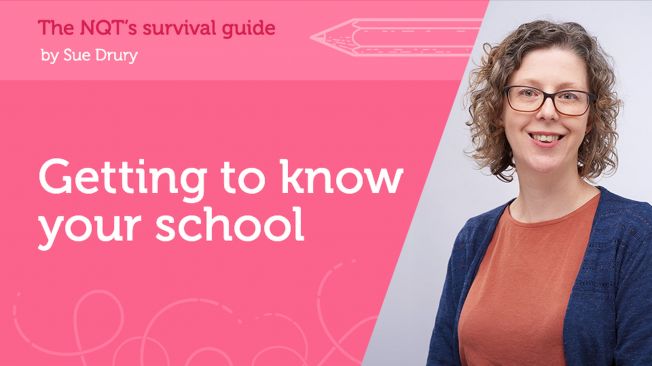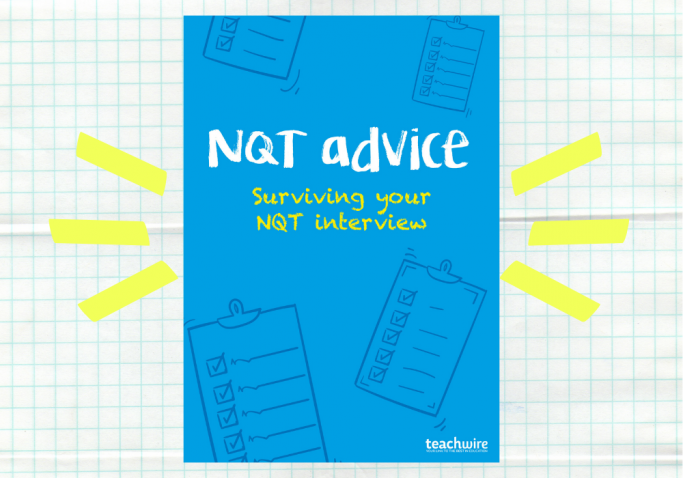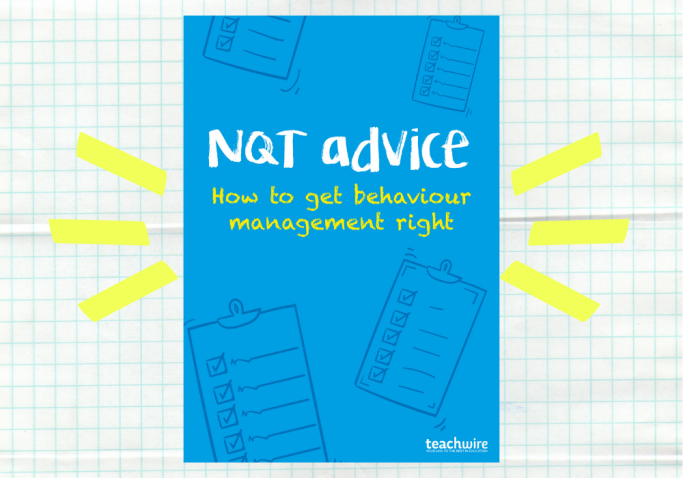10 of the best NQT survival guide resources

Starting teaching in September? Here's a selection of helpful advice, tips, lesson plans and more…

- by Lloyd Burgess
- Former editor of Teachwire

First day nerves can get the best of anyone. So if you find yourself crying in the corner wanting to go home to mummy and daddy don’t feel too bad.
But as a teacher you don’t have the same luxury in this scenario of being a child. It might be harder to overcome for you than it is for sweet little Rosie who just really misses her faithful Labrador, Scout. You’ll want to appear confident and in charge, no matter how often you don’t feel that way.
So what better way to be prepared than to read the good and bad, the dos and don’ts and the ups and downs from other teachers. They all had to be an NQT at some point, and they’ve all got plenty of things they’d wished they’d known.
Well, now you can know those things, and hopefully be better prepared than they were when the time comes. And it almost definitely will come.
1 | The NQT’s survival guide
Sue Drury draws on 20 years of teaching and mentoring experience to run through everything you need to know for your NQT year – from how to communicate with parents to planning lessons, surviving observations and maintaining a healthy work-life balance.
Check out the full course here.
2 | Sage advice
Learn from observations, treat parents like customers and beware of the game players in the staffroom, the then-new teacher Nikesh Pandya advised in his Guardian feature a few years ago.
It has helpful information on managing your expectations and ignoring some of the comments from other teachers that could otherwise have you expecting the worst from day one:
‘One teacher said I needed to be prepared for the worst year of my life….Some teachers just love to share how horrible and emotionally draining their NQT year was, they expect you to feel the same as some sort of rites of passage but it really doesn’t have to be that way.’
It’s well worth giving this short piece a read here.
3 | NQT interview guide
Attending your first NQT interview can be a nerve-racking experience but with the right preparation it needn’t be a nightmare.
In this download you’ll discover a list of common teacher interview questions that are likely to come up, plus some guidance for answering them well. This is the perfect guide if you’re looking for help with NQT interview questions.
Plus, we also cover some of the best questions to ask in a teacher interview.
4 | NQT behaviour management tips
If you’re in your NQT year and would like some advice for getting behaviour management right in this crucial year, Dr Emma Kell is here to help.
Emma is a teacher, middle leader and author of How to Survive in Teaching (Bloomsbury Education). In this download she imparts her wisdom for getting your new class on your side from day one, from taking time to understand pupils’ stories to meaning what you say.
5 | 20/20 Tips

Getting advise from those who have been there and done it is invaluable. Both from the most experienced teachers who have seen many NQTs throughout their career, and those who have been through their first year recently, whose experience will more-closely resemble yours.
This blogpost on fallingintofirst.blogspot.co.uk can offer you 20 such tips from making friends with the janitor and the secretary to stashing up on oranges (vitamin C is essential in a room full of oft-ill youngsters) and chocolate (because, chocolate).
Plus, there’s even a David Bowie reference in there that’ll have you happily humming one of his songs the rest of the day.
6 | Oh, do behave
 Our regular contributor Sue Cowley wrote this for our Teach Primary magazine, all about how you can get your classroom management techniques right from day one, and make your journey through the tricky first year a great deal easier.
Our regular contributor Sue Cowley wrote this for our Teach Primary magazine, all about how you can get your classroom management techniques right from day one, and make your journey through the tricky first year a great deal easier.
It includes great advice on appearing confident, establishing your expectations and winning back a ‘lost’ class (in a behaviour sense, please do not use your children as stakes in a poker game).
7 | Rookie error
The dos are important, but so are the don’ts. That’s why this list of five mistakes new teachers make should also be on your reading list.
For example, when you’re sick on a Wednesday, you might think that as a teacher the right thing to do is force yourself into school because organising everything for a sub will just be too much effort, and because if you’re not there fir one day your whole classroom will fall apart and your students will forget everything they’ve every learned and it’ll be your fault for having the temerity to catch a cold. Tsk tsk.
But actually, don’t do that. Call in sick. Rest. Protect your physical and mental health. It’s a difficult concept to grasp, I know, but you’ll get there in the end.
Give this blog post a read here.
8 | 10 behaviour tips for new teachers
Another helpful Guardian article is this one from Education behaviour specialist Tracey Lawrence. For new teachers, managing your own classroom can be a shock, so Tracey shares her advice on how to survive life as an NQT.
It features short snippets on everything from seating plans to reward policies and most importantly asking for help if you’re struggling.
9 | Get a headstart
Picture this: you’ve spent years preparing for a teaching job, you’ve spent the summer coming up with lesson plan after lesson plan, everything is perfectly scheduled out to the tiniest detail. Your class are going to get the best education you can offer, they’re going to enjoy every single second, and they’ll remember you fondly when they’re all grown up and changing the world.
Well, that was the plan, until it went out of the window on day one when it took them 20 minutes to settle down to anything even remotely resembling learning.
Overly dramatic worst-case-scenarios aside, it’s a great idea to have opening and closing activities at hand to get children into the learning zone from the get-go, and to make sure they’re not zoning out and clock watching at the end of the day.
Thankfully, this Edutopia article has six routines, three each for the start and finish of the school day, to help you do just that.
10 | Blogs, blogs and more blogs
Here’s our list of five excellent bloggers who chronicled their NQT experiences with heart and humour. Read snippets from their most embarrassing incidents and check out links to their other NQT-related posts

















